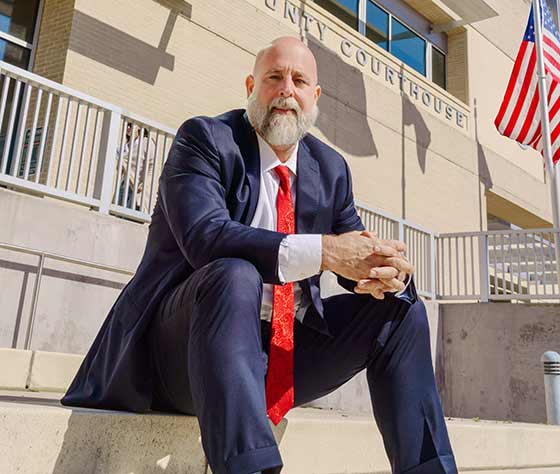Divorce FAQ For Florida
Legal issues that involve family members can be complicated and emotional. Florida has laws in place to protect you and your family during these challenging times. At The Law Offices of Justin Rickman, our attorney’s number one priority is providing compassionate and high-quality legal representation. We have proudly served Central Florida since 2004. You may have a lot of questions regarding family law, which is why we created this list of frequently asked question about divorce for you.
Q: Is Florida a no-fault divorce state?
A: Yes. This means if one person wants to get a divorce, they are not required to prove fault or marital misconduct of the other person.
Q: What does it mean if a marriage is “irretrievably broken”?
A: An irretrievably broken marriage is the most common reason for divorce for no-fault states. It means that both spouses no longer want to live together or make their marriage work; their marriage is broken beyond repair.
Q: Is property always divided 50/50 in Florida?
A: No. Property is divided in a manner determined by either agreement between the spouses or by the court, when many different factors are considered. However, there is a presumption of a 50/50 division of property and debt.
Q: What is nonmarital property?
A: Nonmarital property is any asset or debt that a party owned or incurred prior to the marriage, or after separation. Typically, the other spouse has no rights of ownership in the other’s nonmarital property and whoever owns that property will get to keep all of it. However, there can be exceptions to the rule.
Q: What property is split in a divorce?
A: All assets and liabilities which have been acquired or incurred by either spouse during the marriage and have been deemed marital property will be divided between the spouses. Spouses can agree to how they wish their assets and liabilities to be split in a marital settlement agreement without having to go to court. If they are unable to come to an agreement between them, the court will decide what happens.
Q: Can I change a child support agreement?
A: Yes, a child support order can be modified under certain circumstances. There must be a substantial, material or unanticipated change in circumstances since the time of the last agreement or court order. You cannot change an order just because you want to without mutual agreement and, typically, a judge will want to review the circumstances to ensure the change is warranted even if made by mutual agreement.
Q: If my spouse remarries, do I still owe them alimony?
A: No. Alimony payments may be terminated if the receiving spouse remarries. However, there are steps that should be taken with the court in order to ensure alimony payments are properly terminated.
Q: What happens if a parent does not pay their child support?
A: In Florida, a parent who willfully stops paying child support which was previously ordered by a court can have their tax refund seized, bank account and/or paycheck garnished, driver’s and/or professional license suspended and potentially face jail time. If a person is unable to pay child support due to unforeseen circumstances, it is important that they take the necessary steps to avoid being held in contempt of court.
Q: Can I challenge paternity?
A: Yes. If you are questioning whether you are the biological father of a child, you can demand a paternity test be completed. If the mother of the child refuses to cooperate, you can ask the Court to order the Mother’s cooperation.
Q: Can I prevent a child from being adopted if I believe the child is mine?
A: Yes! It is important if a person believes he has fathered a child with a woman who he was not married to at the time of conception, to take the necessary steps to protect his potential parental rights and register with the Putative Father Registry. Adoption laws are complex and legal counsel is important to ensure your rights are protected.
Dealing with A Family Law Issue? Call Us Today.
If you live in Lake, Sumter, Orange, Osceola or Polk counties and are contemplating divorce, our lawyers can help. Give us a call today at 352-269-8652], or fill out our online contact form.


